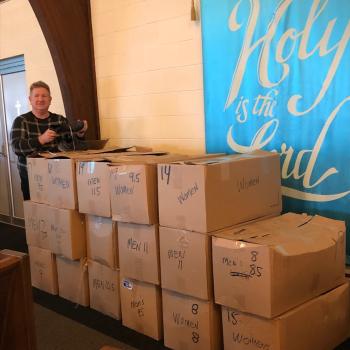
Scripture: Job, chapters 3-4; Acts, chapters 8-9
Job 4:1-9 (NASB) – Then Eliphaz the Temanite responded, “If one ventures a word with you, will you become impatient? But who can refrain from speaking? Behold, you have taught many, and you have strengthened weak hands. Your words have helped the stumbling to stand, and you have strengthened feeble knees. But now it comes to you, and you are impatient; it touches you, and you are horrified. Is your fear of God not your confidence, and the integrity of your ways your hope? Remember now, who ever perished being innocent? Or where were the upright destroyed? According to what I have seen, those who plow wrongdoing and those who sow trouble harvest it. By the breath of God they perish, and by the blast of His anger they come to an end.”
Observations:
I have to confess that sometimes it is difficult to read the speeches of Job’s friends – because I know that they are all wrong. They think that they know; they think that they understand God and His ways. Because they believe that they understand, they’re perfectly willing to babble on to Job about the cause of his troubles.
Eliphaz could have done so much better! There is a glimmer of truth and understanding in what he says, but he goes far beyond it. Here’s the glimmer of truth: Is your fear of God not your confidence, and the integrity of your ways your hope? YES! Job’s fear of God was his confidence. Because he honored God, he knew that he had not done anything to offend God. God Himself confirms this in chapters 1 and 2 in His dialogue with Satan: “There is no one like him on the earth, a blameless and upright man fearing God and turning away from evil” (1:8; 2:3).
Bad Assumptions
And that’s where Eliphaz goes wrong. He operates from an incorrect assumption – or, at least, an incomplete understanding of God. He claims later in the passage that he heard “a voice” talk to him: “Can mankind be righteous before God? Can a man be pure before his Maker?” (4:17). Eliphaz would answer that question, “No” – and he imputed that same answer to God. The problem is that God Himself disagreed with Eliphaz, because God called Job blameless and upright.
Because Eliphaz starts from the wrong assumption, everything else he says and thinks is mistaken. “Who ever perished being innocent?” (v 7). The witness of the prophets would disagree with Eliphaz’ conclusion; they seemed to regularly ask God why the innocent suffer and why the wicked prosper. Eliphaz goes on in verse 8 and says, “According to what I have seen, those who plow wrongdoing and those who sow trouble harvest it.” In the long run, that is true – but Eliphaz has never seen “the long run.” Only God sees that! That’s why the prophets wonder why the wicked prosper.
In fact, consider what Jesus Himself said: “You have heard that it was said, ‘You shall love your neighbor and hate your enemy.’ But I say to you, love your enemies and pray for those who persecute you, so that you may prove yourselves to be sons of your Father who is in heaven; for He causes His sun to rise on the evil and the good, and sends rain on the righteous and the unrighteous” (Matthew 5:43-45, NASB, emphasis added). In the long run, God settles all the accounts. But we don’t live in the long run – and neither did Eliphaz.
Application:
This passage shows us how an incorrect assumption can lead us to bad conclusions. Eliphaz assumed that bad things only happened to bad people, so when Job met his series of catastrophes, Eliphaz jumped to the conclusion that Job had sinned. Eliphaz wasn’t the only one; Job’s other friends made the same mistake. At the end of the story, God tells them that Job was right and they were wrong.
God gives us His Word and His Holy Spirit to help us to know Him. The Word and the Spirit will serve the same function for us that God did for Eliphaz and the others: they correct us when we’re wrong. But we have to be open to hearing that. If we go along assuming that we’re always right, assuming that we understand everything and have all the answers, it won’t take long for us to find ourselves making things worse.
What does God want us to recognize and remember? First, that He is a gracious and merciful God. “For God so loved the world that He gave His only Son, so that everyone who believes in Him will not perish, but have eternal life” (John 3:16, NASB). Second, that it is not our responsibility to judge others, but to share the good news with them. God extended His mercy and grace to us; He wants us to share that with others, that they too might find forgiveness and life in Jesus Christ. Third, that we don’t know enough about Him or about other people to announce why things have or have not happened to them. Eliphaz and the others thought they knew about God and about Job; they were wrong on both counts. If Eliphaz had stopped with verse 6, he would have been fine. Unfortunately, he didn’t stop there – and that means that we know his name today basically because he was wrong!
Prayer: Father, guard us against the presumption that would believe that we know enough to pronounce judgment on them. Help us to recognize that Your ways are not our ways, so we should be very slow to say. “God has caused this.” Help us instead to extend Your grace and Your mercy to others, that in the midst of their struggles, they might be drawn to You. Instead of magnifying the distance between You and others, help us to shorten it by bringing Your love and grace right where they are. Amen.
















